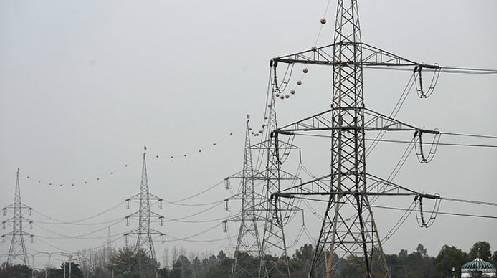ISLAMABAD: A disagreement has emerged between the Power Division and the All Pakistan Textile Mills Association (APTMA) over the actual volume of cross-subsidies embedded in industrial electricity tariffs. APTMA claims that the burden is nearly double the amount reported by the government.
While the Power Division recently announced a Rs174 billion cut in cross-subsidies, estimating Rs74 billion currently applied to industrial tariffs, APTMA disputes the figure. In a letter to Power Minister Sardar Awais Leghari, APTMA Secretary General Shahid Sattar argued that their analysis—based on NEPRA’s FY26 consumer-end tariff determinations—places the true cross-subsidy figure at Rs137 billion.
APTMA defines cross-subsidy as the gap between a consumer’s actual cost of service and the subsidized price charged by the government. The association stressed that industrial consumers pay above-cost rates to offset subsidies for residential and agricultural users, particularly those consuming under 300 units or on non-ToU rates.
APTMA’s calculations, based on FY25 consumption data, indicate the cross-subsidy could reach Rs140 billion, and potentially rise with demand growth. They criticized the Power Division’s use of system-wide averages—such as the FY26 Power Purchase Price (Rs25.98/kWh)—instead of category-wise cost-reflective tariffs, suggesting that such averaging underestimates the real burden on industry.
APTMA reiterated its demand for a regionally competitive power tariff of 9 cents/kWh, citing Nepra’s base industrial rates of Rs21.65/kWh (off-peak) and Rs30.76/kWh (peak) for July 2025—equivalent to around 9.5 cents before applying cross-subsidies.
On wheeling charges, APTMA expressed concern that the 4.5 cents/kWh rate weakens the feasibility of the Competitive Trading Bilateral Contract Market (CTBCM), especially for industries relying on renewables. They noted that marginal grid costs—particularly from RLNG—reach Rs37.79/kWh, pushing average costs to 12.32 cents/kWh, far exceeding industry targets.
The association called for tariff predictability and urged the government to retain industrial tariff access for hybrid consumers using both CTBCM and grid power. They also welcomed the government’s revised incremental consumption package and announced plans to propose reforms to industrial Time of Use (ToU) tariffs following consultations with the Power Planning and Monitoring Company (PPMC).
APTMA stressed that aligning definitions and methodologies for calculating cross-subsidies is essential for restoring industrial competitiveness and ensuring sustainable energy policy.
Story by Mushtaq Ghumman







